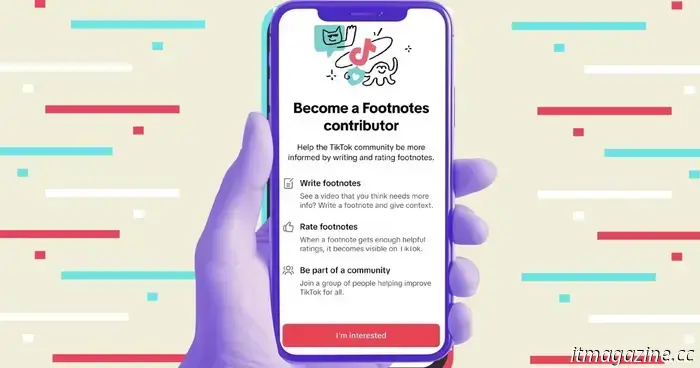
Trump's tariffs revive Europe's drive for cloud sovereignty.
The extensive tariffs imposed by the Trump administration have caused significant disruptions globally and have reignited Europe’s pursuit of digital sovereignty.
A major area of focus has been Europe’s cloud infrastructure, which is predominantly controlled by American tech giants: Amazon Web Services (AWS), Microsoft Azure, and Google Cloud Platform (GCP). Collectively, these “big three” hold over 50% of the cloud market in Europe.
“Europe has been greatly dependent on US technology and cloud services for decades,” remarked Mark Boost, the CEO of UK-based web hosting firm Civo. “However, there are alternatives available, allowing France, Germany, and the UK to fully manage their data and cloud ecosystems.”
According to Boost, Trump’s tariffs have reinforced the notion that Europe can no longer depend on the US for its digital infrastructure.
Fortunately, Europe has a wealth of domestic cloud providers. The largest is OVHcloud from France, which operates the largest data center in the world by surface area. Other notable providers include Finland’s UpCloud, Switzerland’s Exoscale, Germany’s IONOS, and Scaleway from France (which is the preferred cloud provider for French AI startup Mistral).
While these alternative cloud providers may not rival the scale and variety of services provided by their US counterparts, they do present a compelling offering in these uncertain geopolitical times: data sovereignty and privacy.
As Alexander Samsig, a senior consultant and partner at the Norwegian tech consulting firm Funktive, expressed in a recent blog entry: “By 2025, selecting a cloud provider will involve more than just considerations of technology or cost.”
Boost shares this perspective, stating, “A sovereign European cloud could nurture an environment marked by fairness and transparency, allowing domestic providers to compete and giving customers the freedom to select the service that best suits them.”
This vision is not unattainable — Europe has previously reduced its dependence on dominant American tech firms and can do so again.
Historically, Europeans were completely reliant on the US for GPS access; however, today, smartphone users throughout the continent can utilize navigation services via the EU’s Galileo satellite system. Launched in 2016, Galileo is recognized as one of the leading satellite networks globally and is designed as a civilian system with secure service provision at its foundation. The development and deployment of Galileo incurred approximately €10 billion.
For Europe to genuinely commit to establishing sovereign cloud infrastructure, substantial investment will be necessary to support its ambitions.
“Investing in domestic sovereign clouds would significantly aid local industries and clearly signal that Europe is capable of forging an independent course separate from the US and China,” stated Boost.
Political momentum in this area appears to be gaining traction. In a recent speech, Clara Chappaz, France’s AI minister, urged the continent to “work as a pack” against US “predator” technology companies, particularly within the cloud services realm.
To protect Europe from the dominance of US tech, Chappaz emphasized the need for the bloc to enforce its digital regulations, resist Trump’s “foolish” trade war, and potentially implement digital taxes on Big Tech.
She also criticized “sovereignty washing,” where US cloud companies collaborate with EU firms to create an illusion of sovereignty, and supported stringent standards like France’s SecNumCloud certification, which excludes foreign-owned providers based on shareholding limits.
Chappaz asserted that Europe is finally “waking up” to the importance of genuine cloud independence. The minister noted that both OVHcloud and Scaleway have reported record client increases since Trump took office.
The topic of Europe’s digital sovereignty will be central at the TNW Conference, scheduled for June 19-20 in Amsterdam. Tickets for the event are currently available for purchase. Use the code TNWXMEDIA2025 at checkout to receive a 30% discount.
Other articles
 TikTok will allow its user community to provide context for sensational posts.
TikTok is experimenting with a feature named Footnotes that will allow its users to add informative notes to posts that may require extra context.
TikTok will allow its user community to provide context for sensational posts.
TikTok is experimenting with a feature named Footnotes that will allow its users to add informative notes to posts that may require extra context.
 Spotify outage: service has been restored as Spotify claims that reports of a hack are untrue.
It wasn't only you; Spotify was experiencing outages. On April 16, countless users around the globe reported problems with the well-known music streaming platform.
Spotify outage: service has been restored as Spotify claims that reports of a hack are untrue.
It wasn't only you; Spotify was experiencing outages. On April 16, countless users around the globe reported problems with the well-known music streaming platform.
 These four new features from Deezer outpace those of Spotify.
new features on Deezer
These four new features from Deezer outpace those of Spotify.
new features on Deezer
 Fans of Severance, this Lumon Terminal-style MDR Dasher Keyboard might soon be available for you.
MDR Dasher Tastatur
Fans of Severance, this Lumon Terminal-style MDR Dasher Keyboard might soon be available for you.
MDR Dasher Tastatur
 QLED sale: A top-rated 43-inch Samsung TV is now $600 cheaper.
The Samsung 43-inch QN90D 4K QLED stands out as one of the top mid-sized TVs available, and it's currently on sale. Priced at $900 instead of its original $1,300 MSRP, this is an opportunity you won't want to miss.
QLED sale: A top-rated 43-inch Samsung TV is now $600 cheaper.
The Samsung 43-inch QN90D 4K QLED stands out as one of the top mid-sized TVs available, and it's currently on sale. Priced at $900 instead of its original $1,300 MSRP, this is an opportunity you won't want to miss.
 Hubble photographs a galactic hat to celebrate its anniversary.
The Hubble Space Telescope has captured a new image of a cosmic hat.
Hubble photographs a galactic hat to celebrate its anniversary.
The Hubble Space Telescope has captured a new image of a cosmic hat.
Trump's tariffs revive Europe's drive for cloud sovereignty.
According to Mark Boost from CIVO, Trump's tariffs have "solidified the notion" that Europe cannot depend on the United States for its digital infrastructure.
